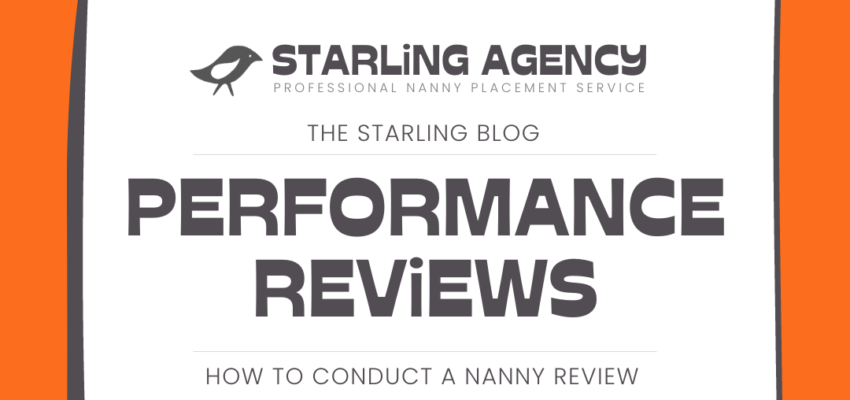
Nanny Performance Reviews
Nanny performance reviews are an essential tool for maintaining a positive and effective caregiver relationship. In this blog, we’ll explore the importance of nanny performance reviews and provide tips on how to conduct them effectively.
The Importance of Nanny Performance Reviews
- Open Communication: Nanny performance reviews offer a platform for open and honest communication between parents and caregivers. It allows both parties to discuss expectations, concerns, and areas of improvement.
- Quality Care: Regular reviews help ensure that the quality of care your child receives remains consistent and in line with your family’s values and requirements.
- Professional Growth: Feedback can help a nanny identify areas for professional growth and development.
- Accountability: Performance reviews can help establish clear goals and objectives. They also provide an opportunity to address any issues that may have arisen.
- Strengthened Relationship: When conducted with empathy and respect, performance reviews can strengthen the bond between the family and nanny. It can create a more collaborative and harmonious working relationship.
Tips for Conducting Nanny Performance Reviews
- Set a Regular Schedule: Establish a regular schedule for performance reviews, whether they are conducted monthly, quarterly, or annually. Consistency is key to maintaining a healthy relationship.
- Create a Comfortable Environment: Choose a comfortable and private space for the review, where both parties can speak openly without distractions.
- Prepare in Advance: Before the review, both the parents and the nanny should prepare their thoughts, notes, and specific feedback to ensure a productive discussion.
- Shine Light on Positives: Begin the review by highlighting the nanny’s strengths and accomplishments.
- Discuss Concerns and Challenges: Address any concerns or challenges that have arisen since the last review. Use specific examples for clarity.
- Set Clear Expectations: Define clear expectations for the nanny’s role, responsibilities, and any changes in your child’s routine or needs.
- Offer Constructive Feedback: When discussing areas for improvement, provide constructive feedback. Be specific and suggest solutions when possible.
- Listen Actively: Give the nanny an opportunity to share their thoughts, concerns, and suggestions. Actively listen and show empathy during the discussion.
- Goal Setting: Collaboratively set goals for the future, both short-term and long-term. These goals should be realistic, measurable, and time-bound.
- Document the Review: Keep a written record of the performance review, including the topics discussed, goals established, and any action items. This document can serve as a reference for future reviews.
- Follow Up: Regularly check in with the nanny on progress toward the established goals and ensure that any concerns are addressed promptly.
Conclusion
Nanny performance reviews are a valuable tool for maintaining a positive and effective caregiver relationship. When conducted with open communication, empathy, and professionalism, these reviews can benefit both parents and nannies. They ensure quality care, professional growth, and a strengthened bond between caregivers and families. By following the tips outlined in this blog, you can create a nurturing and supportive environment for your child’s development and well-being.
